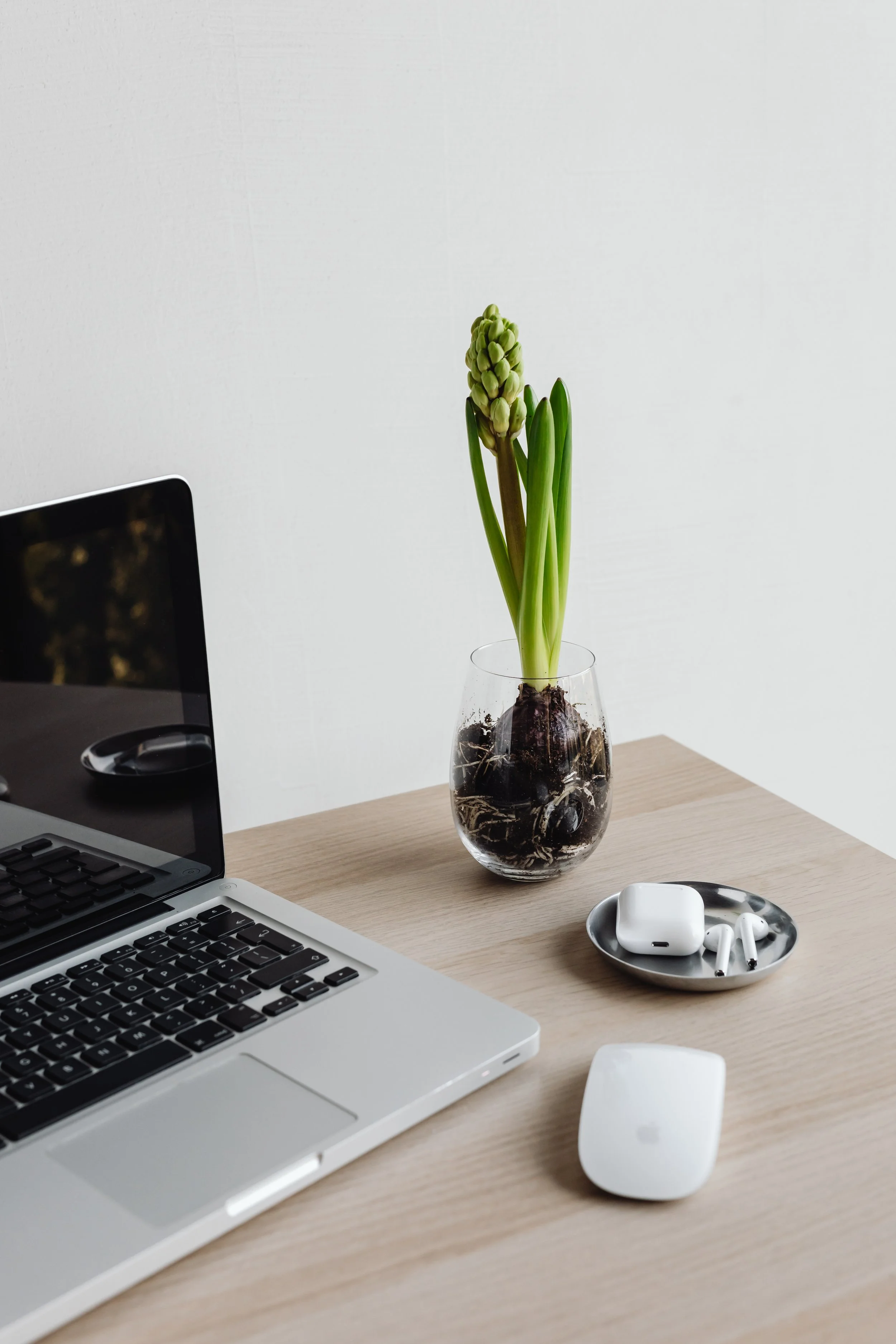Why You Should Turn OFF Your Social Media Notifications as a Small Business Owner
In today’s fast-paced digital world, let’s be honest… social media can feel utterly overwhelming. It can truly feel like a constant battle: trying to create authentic, meaningful content while feeling pressured to chase short-lived trends that may not even gain traction, due to a biased (and often challenging) algorithm.
As a small business owner, it’s easy to become burnt out from wearing so many hats. Social media is a full-time job in itself, and without extra help, it can feel almost hopeless trying to juggle everything at once. But what if turning off your social media notifications could actually help you grow your business and protect your mental health?
Here’s why stepping back from the noise and embracing slower approach to social media can benefit you, along with practical solutions to remain connected with your customers.
Why Turn Off Notifications?
1. To Reclaim Your Focus
Social media notifications are designed to distract you. Every ping can pull you away from meaningful work. By turning off notifications, you can regain your focus and concentrate on creating quality products, serving your customers, and building your brand without constant interruptions.
If you’re interested, I highly recommend watching the documentary The Social Dilemma. It dives deep into how social media apps are designed to keep you glued to your screen.
2. Reduce Stress and Burnout
Always thinking about and checking how many likes your last post received can leave you feeling anxious and completely drained. Getting stuck in the constant state of refreshing your notifications is soul-sucking, and when you shift your focus to curating your online persona instead of living in the moment, you become less grounded in the real world and subconsciously begin to prioritize validation over experience. Turning off notifications allows you to set boundaries, while protecting your mental health and focusing on your own true ambitions.
3. Embrace Slower, More Intentional Social Media
Slowing down your social media usage doesn’t mean neglecting it. It means using it more intentionally, with purpose and wellbeing. Instead of reacting to every notification at any point throughout the day, schedule specific times to check your accounts. This way, you can engage more thoughtfully and authentically.
4. Be More Present Offline
When you’re not constantly on your phone, you can be more present in your business and personal life. Whether you’re working on a new product, meeting with a client, or spending time with loved ones, being offline allows you to fully immerse yourself in greater things.
What If a Customer Needs to Reach You?
Turning off notifications doesn’t mean completely cutting off communication. Here are some alternative ways to ensure your customers can still reach you with no problem:
1. Provide a Dedicated Point of Contact
Email: Create a professional email address (e.g., hello@yourbusiness.com or yourbusiness@gmail.com) and list it prominently on your website, social media profiles, and packaging.
Contact Form: Add a contact form to your website for inquiries.
Phone Number: If appropriate, provide a business phone number for urgent matters.
2. Set Clear Response Times
If you’d like, you can let your customers know when they can expect a reply, if needed. For example:
Add a note to your Instagram bio: “DM responses within 24 hours.” or “NO DMS” in general.
Set up an auto-reply for DMs: “Thanks for reaching out! We check messages daily and will respond within 24 hours. For urgent inquiries, please email hello@yourbusiness.com.”
TREAT DMS LIKE A WORK EMAIL
3. Use a Scheduling Tool
Tools like Later or Hootsuite allow you to schedule posts and check messages at specific times. This way, you can batch your social media tasks and avoid constant distractions.
4. Create a FAQ Page
FAQ pages are so incredibly important to have on your website! Anticipate all common questions and create a FAQ page on your website to reduce the number of repetitive inquiries and empower customers to find answers on their own.
How to Transition to Slower Social Media Usage
1. Start Small
Turn off notifications for one platform at a time. For example, begin with Instagram, then gradually extend to Facebook and TikTok.
2. Set Boundaries
Designate specific times to check your accounts (e.g., once in the morning and once in the evening). Stick to these times and avoid scrolling outside of them. There are also many apps out there that track and regulate your screen time if you need extra assistance.
3. Track Your Progress
Notice how turning off notifications affects your productivity, stress levels, and creativity. You might find that you’re more focused, less anxious, and better able to serve your customers. There’s so much evidence out there that proves how social media can cause unnecessary stress and create an unhealthy, constant yearning for overconsumption.
Turning off social media notifications isn’t about disconnecting; it’s about reconnecting with what truly matters. By embracing slower social media usage, you can reduce stress and build a more intentional, sustainable business. And with clear communication and alternative contact options, your customers will still feel supported.
So, take a deep breath, go into your settings, and turn off those notifications. Tune in with yourself and the world around you. There’s lots to be grateful for!

